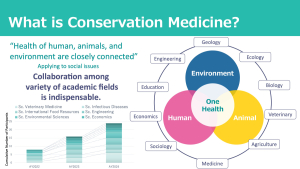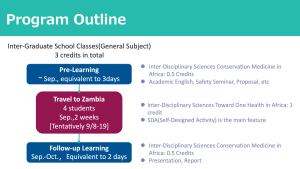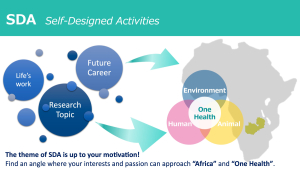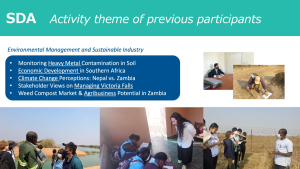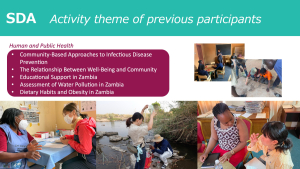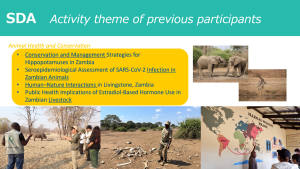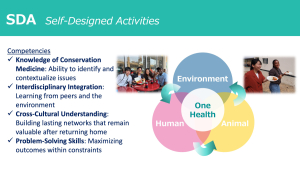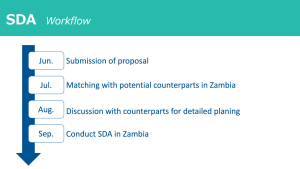Syllabus
Outbound (for students at Hokkaido University)
In the 2025 academic year, the program will focus on the Self-Designed Activity (SDA), consisting of a two-week field study in Zambia and approximately one week of preparatory and follow-up learning.
It will be offered as a 3-credit course under the Learning Satellite Program, part of the Inter Graduate School Classes.
Program Outline
Activity in Zambia
Activities and contents of classes may be subject to change. For more details, see the Application Guideline and the Annual Report for IVCMEP2024 also.
Inbound (for students at the University of Zambia and other partner institutions in Africa)
Activities and contents of classes may be subject to change. For your reference, see the Annual Report for IVCMEP2023.
In the 2025 academic year, the program will focus on the Laboratory stay in the field of your interest for two-week in Sapporo, Japan and approximately one week of preparatory and follow-up learning.
It will be offered as a 2-credit course under the HSI (Hokkaido Summer Institute).
For your reference of activities in Sapporo, see the Annual Report for IVCMEP2024. Note that some activities are different from this year’s plan.
Evaluation Method-Rubric Assessment
We have identified core skills to be acquired through our programme as
1) Understanding of One Health 2) Interdisciplinary Sense 3) Intercultural Diversity and International Attitude 4) Problem-Solving Skills 5) Communication and Language. This novel evaluation method, Rubric, offers students the opportunity to reflect on their own mastery and clarify what skills they need to strengthen.



